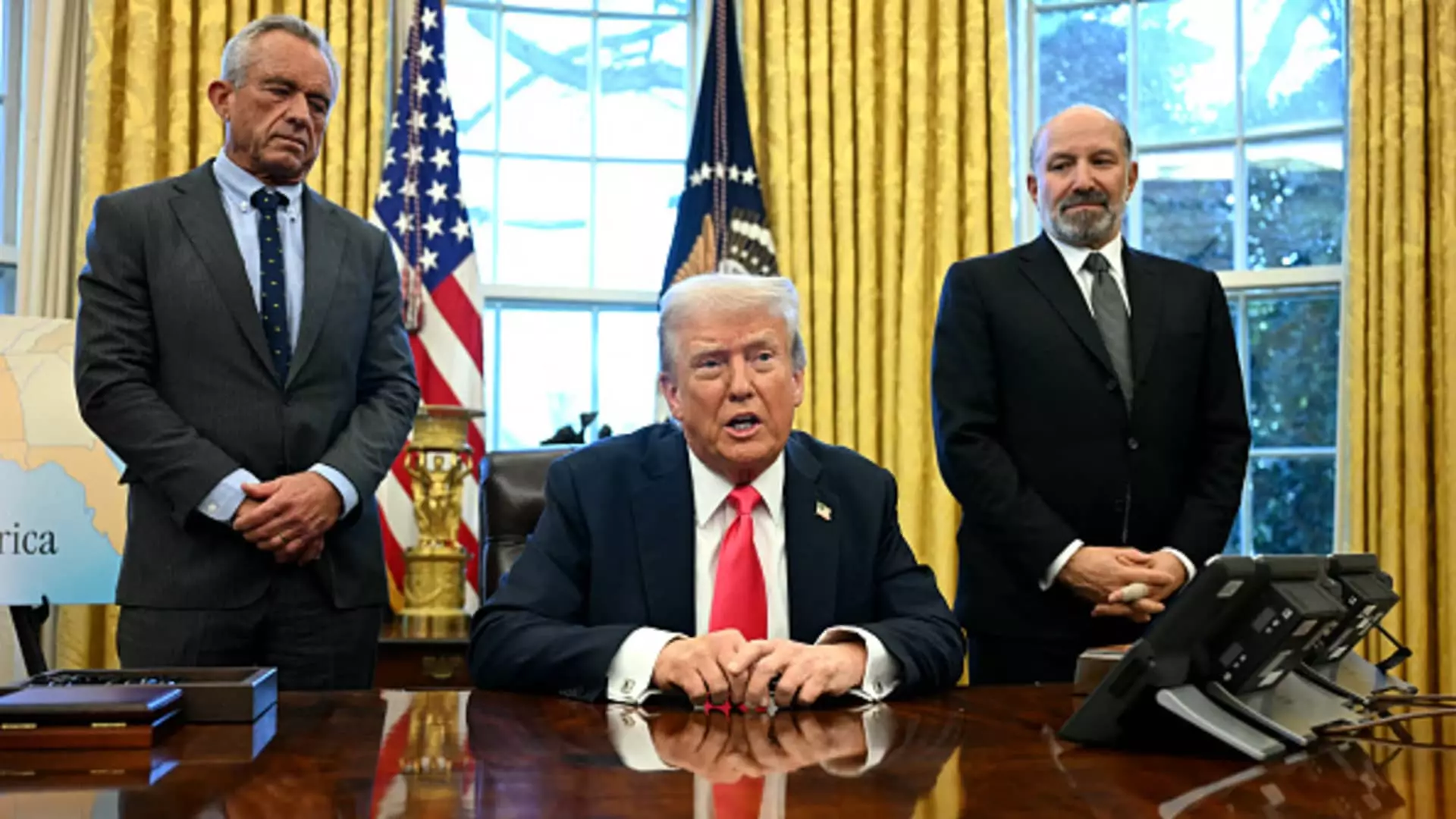In an era where science should reign supreme in guiding public health policy, the recent appointments and positions held by individuals like Robert F. Kennedy Jr. raise intense concerns. Serving as the Secretary of Health and Human Services, Kennedy has established himself as a leading proponent of anti-vaccine rhetoric, embodying a dangerous trend that downplays the significance of evidence-based medicine for the sake of personal ideologies. The unsettling resignation of Peter Marks, head of the FDA’s biologics division, in protest against Kennedy’s skepticism is not merely an internal conflict within government health agencies; it symbolizes a broader clash between scientific integrity and conspiratorial beliefs.
Kennedy’s approach resembles a modern-day crusade against vaccines, positioning him as a figure who promotes unproven treatments while questioning the efficacy of vital immunizations. His dismissal of the measles, mumps, and rubella (MMR) vaccine underlies a foundation of misinformation that not only misguides public perceptions but also poses a direct threat to community health. Despite overwhelming scientific consensus supporting vaccine safety and efficacy, Kennedy’s narrative fosters societal doubt, which can have dire consequences for public health as vaccination rates falter.
Economic Ramifications and Public Trust
The ripple effects of appointing an individual steeped in anti-science beliefs extend into the economic realm as well. Recent stock declines in vaccine manufacturing companies like Moderna and Novavax highlight how politically charged decisions regarding health policy can undermine investor confidence in biopharmaceutical markets. A selloff of shares in these essential companies following Marks’ resignation conveys a chilling message: leadership plagued by anti-vaccine sentiment sends shockwaves through the biotech industry, affecting not just financial markets but all the lives that depend on vaccines.
The analysts at Cantor Fitzgerald, who categorically oppose the continued presence of Kennedy at HHS, illustrate a crucial point: the health department should not be guided by individuals who lack both substantive training and a grounding in public health principles. When decision-making influence flows into the hands of those who misinterpret data and promote conspiracy theories, the impact reverberates far beyond stock prices—potentially translating into public health crises resulting from decreased immunization rates.
The Distortion of Public Conversations
The debate surrounding vaccinations should revolve around concrete science and verified data, yet figures like Kennedy distort the conversation to emphasize personal anecdotes and flawed narratives. His invocation of unverified remedies perpetuates a culture of skepticism, positioning unfounded fears about vaccines in opposition to robust scientific evidence. This confusion significantly undermines public trust in health agencies like the CDC, especially as they attempt to combat misinformation while managing ongoing health crises.
The notion that an “amateur scientist,” as described by Cantor analysts, could lead a prominent health organization further complicates public dialogue. The very fabric of health policy hinges on data-driven decisions. When the lead figures are more concerned with fostering a “freedom to choose” narrative, while simultaneously promoting harmful myths linking vaccines to autism, the public suffers. Promoting personal freedoms is essential—but not when the stakes involve the health of children and the broader community.
Urgent Call for Reevaluation
The overarching concerns articulated by health analysts and biotech experts alike should trigger urgent action from the current administration. It is an imperative that appointments in agencies entrusted with public health reinforce commitment to scientific integrity rather than perpetuate doubts that can lead to avoidable illnesses and fatalities. As evidenced by Cantor’s decisive call to reevaluate Kennedy’s position, the intersection of public health and misaligned ideologies serves as a stark reminder of the vigilance required to protect the collective well-being of the nation.
In the age of information, the responsibility to discern truth from fallacy becomes paramount. When influential figures in health policy embrace anti-science narratives, it endangers the very public health initiatives designed to protect American lives. The dangers extend beyond politics—they represent a potential regression into a time when vaccine-preventable diseases caused unnecessary suffering and loss. The push for scientific accountability in health leadership roles must become a primary objective if we wish to safeguard future generations’ well-being against a backdrop of rising skepticism and misinformation.

